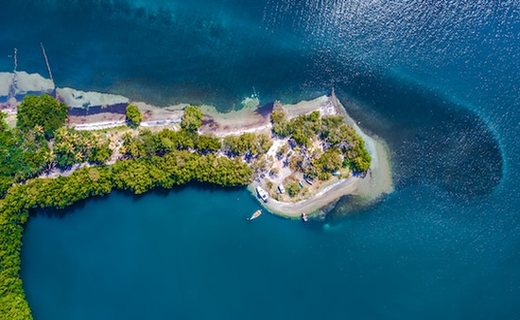What is Blue economy? (Explained)

The global economy is intricately linked to the health of our planet, and one of its often overlooked yet crucial components is the blue economy. The blue economy, often referred to as the "ocean economy," emphasizes the sustainable use of ocean resources for economic growth, improved livelihoods, and the preservation of oceanic ecosystems. This concept acknowledges the significance of our oceans in supporting various industries while promoting conservation efforts to maintain their vitality.
Components of the Blue Economy
The blue economy encompasses a diverse range of sectors that are closely intertwined with the oceans. These include:
Fisheries and Aquaculture
The harvesting of fish and seafood from oceans, as well as the cultivation of aquatic plants and animals, such as seaweed and shellfish.
Shipping and Transport
Maritime trade and transportation play a crucial role in the global economy, facilitating the movement of goods and resources across continents.
Tourism
Coastal and marine tourism, including recreational activities like diving, snorkeling, and beach vacations, contributes significantly to the economies of coastal regions.
Renewable Energy
The blue economy explores the potential of harnessing energy from ocean resources, including offshore wind, tidal energy, and wave energy.
Biotechnology and Pharmaceuticals
Marine organisms offer a wealth of bioactive compounds that have applications in pharmaceuticals, cosmetics, and other industries.
Mineral Resources
The ocean floor holds valuable mineral resources like polymetallic nodules and rare-earth elements.
Challenges in the Blue Economy
Despite its potential, the blue economy faces numerous challenges:
Overfishing
Unsustainable fishing practices can lead to the depletion of fish stocks and disrupt marine food chains.
Pollution
Marine pollution, including plastic waste and oil spills, poses a significant threat to ocean health and biodiversity.
Climate Change
Rising sea temperatures and ocean acidification impact marine ecosystems, affecting both biodiversity and economic sectors.
Habitat Destruction
Coastal development and destructive fishing methods can damage vital marine habitats like coral reefs and mangroves.
Importance of the Blue Economy
The blue economy holds immense importance for several reasons:
Economic Growth
The sectors within the blue economy contribute significantly to national and global economies, generating employment opportunities and driving economic growth.
Resource Sustainability
Emphasizing sustainable practices ensures that ocean resources are available for current and future generations.
Biodiversity Preservation
Responsible management of the blue economy helps safeguard marine biodiversity and maintain the balance of ecosystems.
Climate Resilience
Coastal regions often rely on the oceans for protection against climate-related events, such as storms and rising sea levels.
Transformative Impact of the Blue Economy
The blue economy brings about transformative change in several ways:
Innovation and Technology
The blue economy encourages the development of innovative technologies for sustainable resource management, such as advanced fishing techniques and renewable energy solutions.
Policy and Governance
It prompts the creation of policies and regulations that promote sustainable practices, discourage overexploitation, and mitigate pollution.
Local Communities
The blue economy can uplift coastal communities by providing alternative livelihoods, promoting eco-tourism, and enhancing the well-being of local residents.
Scientific Research
The focus on the blue economy drives scientific research to better understand marine ecosystems, leading to informed decision-making.
Conclusion
The blue economy holds immense promise for both economic development and environmental preservation. By embracing sustainable practices, harnessing technological innovations, and fostering international cooperation, we can ensure the oceans continue to contribute to our well-being for generations to come. Balancing economic growth with responsible resource management is the key to unlocking the full potential of the blue economy while safeguarding the Earth's invaluable marine ecosystems.
Related articles










Tips for becoming a successful public speaker, and monetizing your skill
More articles »
Latest Posts

Top 5 best cheapest and fastest VPS hosting providers

What is remote work? (Meaning, Examples, Type, Pros and Cons)

How to become a professional Writer, (step-by-step guide)

Top 10 best platforms to start podcasting in 2024

ATBU shut down campuses after students’ protests
More Posts »